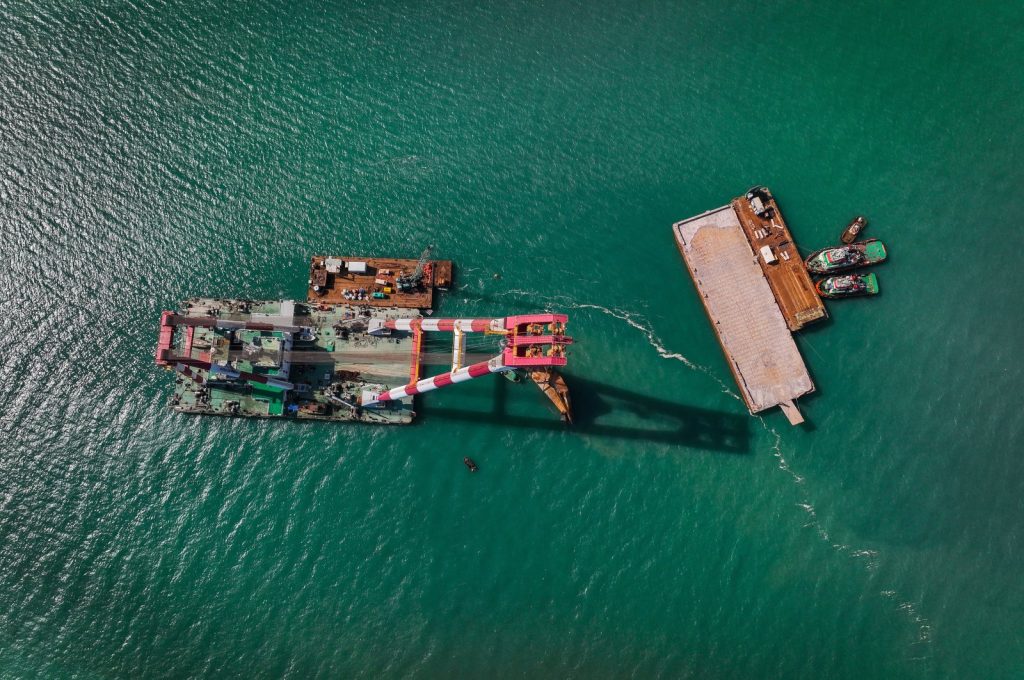Amid power shifts in the international system, Türkiye is engaging in energy diplomacy at full throttle, navigating through a dense fog of information overload. Significant events constantly unfold around us, yet it is essential to look beyond the surface to understand what will matter most in the coming decade. The U.S. grip on key energy zones is waning, China is relentlessly searching for new energy territories, and Russia is striving to safeguard its control over energy supply points in Central Asia and Europe. Emerging actors like South Africa, Nigeria and Brazil are breaking free from post-colonial ties and striving for autonomy in energy markets through their material capacity in the sector. Although Türkiye cannot currently be a dominant player in this arena, it is meticulously weaving a network of potential energy suppliers with promising futures.
Thinking outside the box
As global dynamics shift, countries increasingly adopt more flexible and resilient approaches to foreign policy. While some nations adapt to the fluidity of interconnected challenges, others cling to traditional methods of global politics. Both approaches have merit, depending on the context. However, balancing innovation with longstanding commitments is a challenging task. Türkiye, carrying both the weight of its history and the need for forward-thinking solutions, finds itself in a unique position. These dual obligations resemble a bird’s wings – both are essential for lift-off.
Recent actions provide a glimpse into Türkiye’s approach to foreign policy. Last month, Türkiye signed a memorandum of understanding with the Democratic Republic of Congo for potential hydrocarbon exploration. Subsequently, Oruç Reis, Türkiye’s first naval drill ship, was sent to Somalia to survey the Somali continental shelf for viable oil and natural gas reserves. Concurrently, the Turkish National Grand Assembly approved a motion allowing Turkish soldiers to be stationed in the Central African Republic. In early November, President Recep Tayyip Erdoğan hosted Senegalese President Diomaye Faye, where both leaders agreed on a partnership in the energy sector and signed a memorandum of understanding on energy and hydrocarbon resources.
At first glance, Türkiye’s foreign policy aims to position itself as a key player in the global energy market by securing potential centers of energy production and access. However, it also addresses one of the biggest challenges in contemporary world politics: empowering allies while securing national interests. These partner countries may lack the capacity for efficient energy investment or the technological capabilities to make these zones viable. With a clear goal of supporting these actors, Türkiye, on the other hand, strives to stimulate the awakening of a new world order. Türkiye’s longstanding argument that “The world is bigger than five,” is both rational and just, though it lacks the material base to compel dominant actors to take notice. These breakthrough agreements have the potential to promote the rise of the African continent without conditionalities or hidden agendas, such as the Chinese debt trap.
Prioritizing socio-cultural heritage
World politics has shifted from political calculations and diplomatic courtesy to “money politics,” largely as a result of the great powers’ influence on the “spirit of the times.” Scholars in security studies often cite the U.S. decision to use nuclear weapons on Japan as a defining moment in establishing a U.S.-led security architecture in the international system. While security politics remains crucial, it’s often overlooked that the global system isn’t solely based on military muscle; rather, it’s centered on managing and channeling actors’ behaviors at minimum cost. The U.S. method often involves using economic means as both a force multiplier and diplomatic leverage. This shift toward economic prioritization brings its own challenge: overlooking local socio-cultural dynamics and the historical obligations of great powers. The U.S. interventions in Iraq and Afghanistan exemplify the consequences of neglecting indigenous factors. The show of military might tore apart the social fabric of these countries, resulting in an endless cycle of conflicts.
Now, history has reached a “now or never” moment: either this neglected understanding will be acknowledged, bringing peace to regions marked by tears and blood, or new approaches – designed with input from local voices – will take the stage. In this context, Türkiye’s bold attempt to create a new “Development Road” could ignite the dawn of a new era in Iraq. For the first time since the British army’s retreat and unlawful occupation in 1918, an actor has offered the Iraqi people a clear path to a prosperous future. While it may seem exaggerated, the Basra Development Road project could serve as a model for intra-continental disputes in Latin America. Brazil and Bolivia, for example, have faced conflicts over road construction projects aimed at improving connectivity for trade purposes. Differences in infrastructure priorities, funding and environmental concerns often complicate regional collaboration on development projects, leading to intense competition. The Basra Project could provide a framework for these countries to end their disputes, foster cooperation and combat longstanding issues like drug trafficking and paramilitary groups in rural areas.
In conclusion, it could be said that Türkiye has kindled the flame but hasn’t yet ignited the full potential of a transformative change in the international system. Despite recent challenges and hurdles in foreign policy, Türkiye’s bold and strategic steps toward sustainable peace and development deserve applause. Balancing empowerment in non-traditional foreign policy areas with regional stability is a foreseeable goal as long as unity and solidarity at home remain intact.


